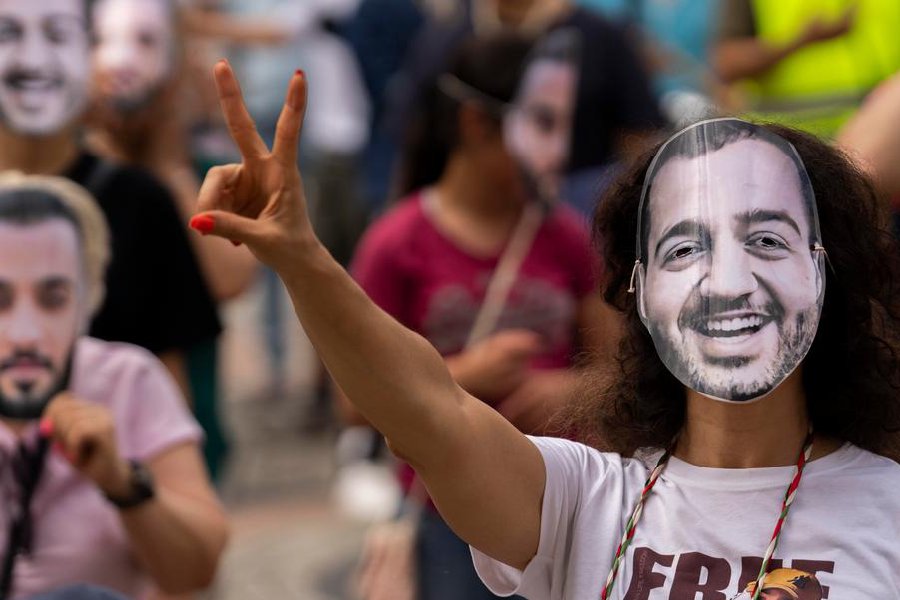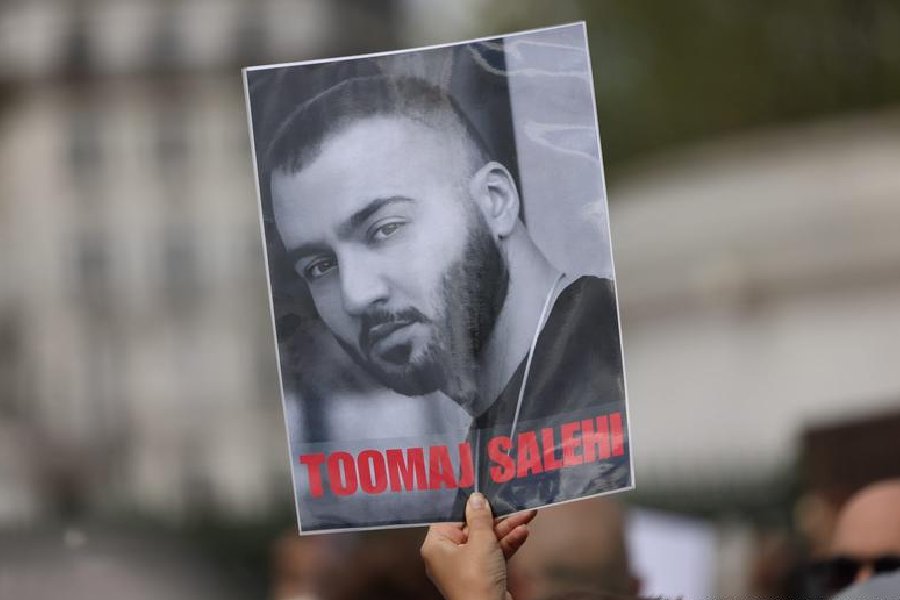Iran's Supreme Court overturned a death sentence against rapper Toomaj Salehi, the artist's lawyer said on Saturday.
Salehi was jailed in October 2022 after he publicly supported widespread protests sparked by the death of Kurdish woman Jina Mahsa Amini in police custody.
Salehi has also made songs and music videos criticising Iran's government.
What do we know about the court's decision?
Lawyer Amir Raisian said in a post on X, formerly Twitter, that the court has ordered a retrial.
"The Supreme Court prevented an irreparable judicial error," Raisian said.
There was no immediate official confirmation of the court's decision.
In April, Salehi was sentenced to death by an Iranian court for the capital offence of "corruption on Earth" and was also convicted of "assistance in sedition."
In January, singer Mehdi Yarrahi was sentenced to two years and eight months in prison after criticising Iran's headscarf requirement for women.

Salehi was arrested in October 2022 after he joined nationwide protests Deutsche Welle
What was Iran's protest movement about?
Jina Mahsa Amini, a 22-year-old woman from the city of Saqqez in Iran's western Kurdistan province, was in Tehran when she was arrested by morality police over allegedly failing to observe the Islamic Republic's strict dress code by improperly wearing her hijab.
Her death in police custody was followed by widespread protests and an ensuing crackdown in which hundreds of people died, including dozens of security personnel.
Nine people have been executed in cases related to the protest movement involving killings and violence against security forces.
Covering the neck and head has been compulsory for women in Iran since 1983.
Iranian police in recent months have toughened controls on women who ignored the state-imposed dress code.











